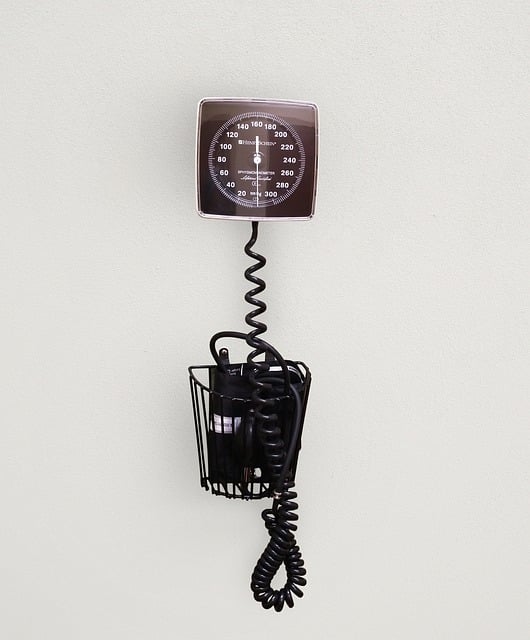Iron deficiency anemia, characterized by low healthy red blood cells, causes fatigue and shortness of breath. The Standard Liver Blood Test (SLBT) in the UK is a key tool for early detection via measuring hemoglobin and hematocrit levels. Anomalies like low Hb, high MCV with low MCHC indicate iron deficiency. Healthcare professionals use SLBT results to guide personalized treatments from dietary changes to severe interventions.
Iron deficiency anemia is a common yet serious condition, often caused by inadequate iron intake or blood loss. In the UK, standard liver blood tests can play a crucial role in its early detection. This comprehensive guide explores the symptoms of anemia, how these routine tests help identify it, and the available treatment options. By understanding the significance of the Standard Liver Blood Test UK, individuals can take proactive steps towards managing their iron levels effectively.
- Understanding Iron Deficiency Anemia and its Symptoms
- How Standard Liver Blood Tests in the UK Help Detect Anemia
- Interpreting Test Results and Treatment Options
Understanding Iron Deficiency Anemia and its Symptoms
Iron deficiency anemia is a common blood disorder where the body lacks enough healthy red blood cells, which are responsible for carrying oxygen to all parts of your body. This condition arises when there’s not enough iron—a vital component of hemoglobin, the protein in red blood cells that delivers oxygen—in the body. Symptoms can vary from mild to severe and may include fatigue, weakness, pale skin, shortness of breath, dizziness, headaches, and cold hands or feet. If left untreated, it can lead to more serious health issues.
A Standard Liver Blood Test (SLBT) in the UK, also known as a full blood count (FBC), is often used to detect anemia. This test measures the number and type of cells in your blood, including red blood cells. Low levels of hemoglobin or hematocrit—both indicators of iron deficiency—can suggest anemia during SLBT results interpretation. Early detection through routine tests can help manage the condition effectively with dietary changes or supplements, ensuring better overall health.
How Standard Liver Blood Tests in the UK Help Detect Anemia
In the UK, Standard Liver Blood Tests (SLBTs) play a crucial role in detecting iron deficiency anemia. These tests are routinely conducted as part of a comprehensive health check and can provide valuable insights into a person’s overall health. One of the key markers measured in SLBTs is hemoglobin (Hb) levels. Hemoglobin is a protein in red blood cells responsible for carrying oxygen throughout the body. Low Hb levels are indicative of anemia, where the blood lacks sufficient healthy red blood cells to transport oxygen efficiently.
Additionally, SLBTs assess other parameters like red blood cell count (RBC), mean corpuscular volume (MCV), and mean corpuscular hemoglobin concentration (MCHC). An abnormally low RBC count suggests a decrease in red blood cells, which can be due to iron deficiency. High MCV, coupled with low MCHC, often points to an underlying iron deficiency, as these values reflect the size and content of red blood cells. By analyzing these markers, healthcare professionals in the UK can effectively identify iron deficiency anemia through standard liver blood tests, enabling timely intervention and management.
Interpreting Test Results and Treatment Options
Interpreting test results is a crucial step in managing iron deficiency anemia. A Standard Liver Blood Test (SLBT) in the UK, which assesses liver function and stores of iron, can provide valuable insights. Elevated levels of ferritin, a protein that stores iron, indicate excessive iron loss or reduced iron absorption. If the SLBT reveals low hemoglobin or red blood cell (RBC) counts, it suggests anemia.
Treatment options typically involve addressing the underlying cause. This may include dietary changes to increase iron intake, such as incorporating more iron-rich foods like leafy greens and lean meats. In some cases, oral iron supplements can be prescribed. For severe deficiencies, injections of iron or even blood transfusions might be necessary. Consulting with a healthcare professional is essential to determine the best course of action based on individual test results.
Iron deficiency anemia is a common yet treatable condition, and the standard liver blood test in the UK plays a vital role in its early detection. By analyzing various indicators, this routine examination can uncover iron deficiency, allowing for prompt treatment options such as dietary changes or supplementation. For individuals experiencing symptoms like fatigue or pale skin, these tests offer a straightforward path to managing their health effectively.
